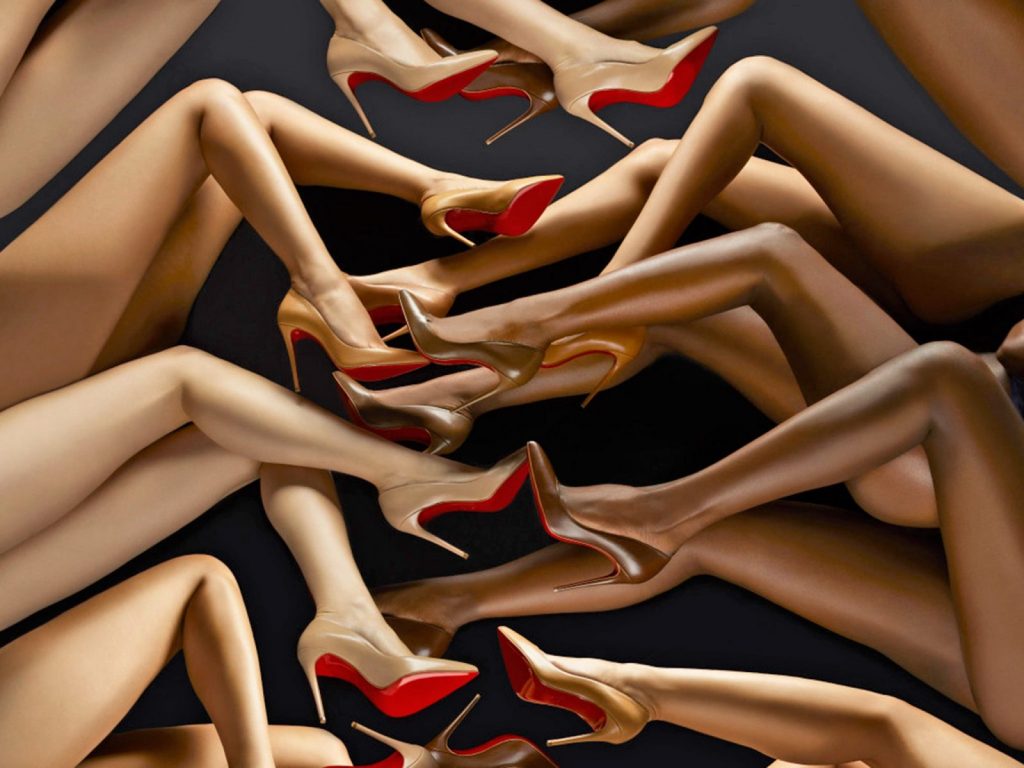Christian Louboutin has been handed a loss in the latest round in its seven-year-long attempt to secure a trademark registration in Japan for its famed red sole. In a decision dated June 7, the Appeal Board of the Japan Patent Office refused to register Louboutin’s red sole as a trademark on the basis that the Pantone 18-1663TP-hued mark lacks the necessary distinctiveness to serve as an indicator of source for high-heeled footwear in the Japanese market, where the Appeal Board stated that red soled shoes have been offered up for decades, including before Louboutin started offering up its pricey footwear in Japan in 1996.
Affirming a 2019 registration refusal from the Japan Patent Office (“JPO”), the Appeal Board decided that Louboutin’s red sole mark lacks both inherent and acquired distinctiveness, as first reported by Osaka-based trademark attorney Masaki Mikami. In terms of the latter, the Appeal Board took issue with Louboutin’s brand awareness survey of 3,149 Tokyo, Osaka, or Nagoya-based women between ages 20 and 50, which revealed that 43.35 percent of survey participants associated the red sole trademark with Louboutin. Despite Louboutin’s argument that the survey results established that its red soles have acquired distinctiveness among relevant consumers and thus, should be registered under Article 3(2) of the Trademark Act of Japan (which states that a trademark that lacks inherent distinctiveness may be registrable if consumers recognize the goods/services as originating from a single source), the Board held otherwise.
Among other things, the Appeal Board noted that while 43.35 percent of survey participants associated the red sole trademark with Louboutin, more than half did not. Beyond that, the Board noted that Louboutin’s red sole mark, on its own, is likely not enough to enable consumers (including those who do, in fact, associate the red sole with Louboutin) to distinguish Louboutin’s shoes from those of competitors that have also offered up soles with red soles, including Chanel, Christian Dior, and Salvatore Ferragamo, among others. “Without the aid of another source indicator, [namely], the ‘Louboutin’ word mark,” the Board asserted that the average consumer will not be able to tell if a red-soled shoe is a Louboutin “given that a lot of red-soled heels and shoes have been distributed by competitors.”
As such, the board determined that the survey evidence was “insufficient to admit acquired distinctiveness of the applied mark among relevant consumers nationwide.”
In furtherance of its refusal, the Board also stated that registering Louboutin’s red sole mark would serve to restrict competitors from making use of the color red on shoe soles, noting that the “red color has been freely used in the relevant industry to enhance the aesthetic appearance of shoes.”
The Board’s decision comes amid a separate – but related – trademark fight that Louboutin waged in Japan when it filed suit against Eizo Collection Co., Ltd., alleging that the Japanese footwear company was infringing its red sole trademark and thus, running afoul of unfair competition law by selling red soled shoes of its own without Louboutin’s authorization. The Tokyo District Court sided with Eizo in a decision in March on the basis that Louboutin lacks robust rights in the red sole trademark in Japan, and beyond that, because consumers are unlikely to confuse the two companies’ offerings.
While Louboutin has rights in – and a registration for – its red sole mark in the U.S. (albeit for shoes of a contrasting color), brands have struggled to secure protection for single color marks in Japan, with the national trademark body refusing to register a single color as a trademark since the Trademark Act of Japan was amended in 2014 to allow for the registration of nontraditional marks, including color marks.











